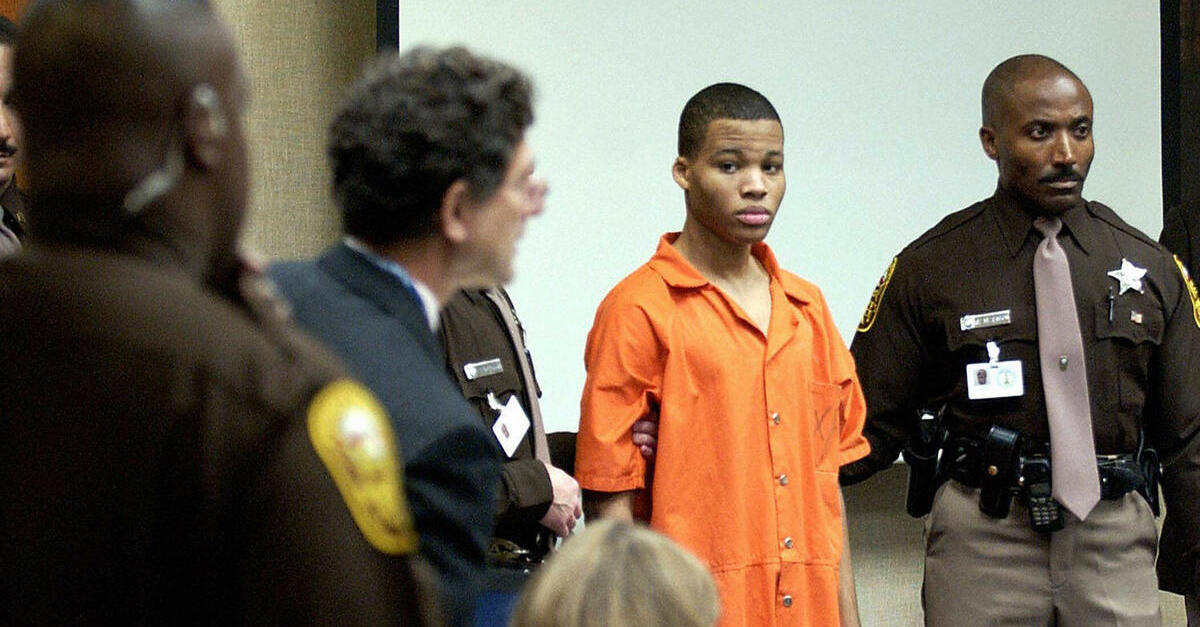
This fall, the Supreme Court will have the chance to speak up on an important criminal justice issue as it decides an appeal in the infamous “D.C. Sniper” case. The case is a chance for an increasingly conservative SCOTUS to decide whether it will continue or curtail the recent trend of ramping up leniency in criminal cases involving juvenile offenders.
The Court will be considering an appeal by Lee Boyd Malvo, the then-17-year-old sniper who went on a violent rampage with 41- year-old John Allen Muhammad in 2002, killing 17 people and injuring 10 others. During the weeks when Malvo and Muhammad were at large, the case erupted into public hysteria and media frenzy.
Muhammad was executed in 2009 for his crimes; Malvo was sentenced to six consecutive life sentences without parole in Maryland and four more in Virginia. He now appeals those sentences on the grounds that the law has changed – and that life-without-parole sentences may not have been constitutional for a juvenile offender.
In the years following Malvo’s sentencing, the Supreme Court made some important rulings affecting juveniles convicted of homicide. In 2012, SCOTUS ruled in Miller v. Alabama that mandatory life-without-parole sentences for people under 18 was a violation of the Eighth Amendment. Children, the Court found, are constitutionally different from adults for sentencing purposes. Four years later, SCOTUS ruled in Montgomery v. Louisiana, that the Miller rule applies retroactively.
Once the law changed, Malvo appealed his life sentences, arguing that life-wtihout-parole sentences for juveniles do indeed constitute excessive punishment; a 3-0 panel of the Fourth Circuit then upheld the lower court’s decision to vacate Malvo’s Virginia sentence. By contrast, a Maryland judge denied new sentencing hearings for Malvo in that state.
Much about the Malvo appeal rests on the legal importance of one word: mandatory. While the sentence at issue in the Miller case had been a mandatory life sentence, Malvo’s, in the strictest sense, was not.
During Malvo’s trial, the judge had given the jury two choices: a sentence of death or a sentence of life without parole. Following the jury’s decision, the trial judge had discretion to further reduce the jury’s recommendation, but chose not to do so. Whether these circumstances are functionally equivalent to a “mandatory” life sentence, and how widely the Miller holding applies are now questions for the Supreme Court.
As Malvo’s case heads to SCOTUS, there will an opportunity for the current court to revisit a topic on which there had been much dissension. The 2012 Miller case garnered dissents from Justices John Roberts, Samuel Alito, Clarence Thomas, and Antonin Scalia, and three of those (Thomas, Scalia, and Alito) were also dissenters in Montgomery. Now, SCOTUS will proceed without Anthony Kennedy’s vote to widen Eighth Amendment protections for juveniles. The case will be heard in the Supreme Court’s upcoming fall term.
[image via Davis Turner/AFP/Getty Images]